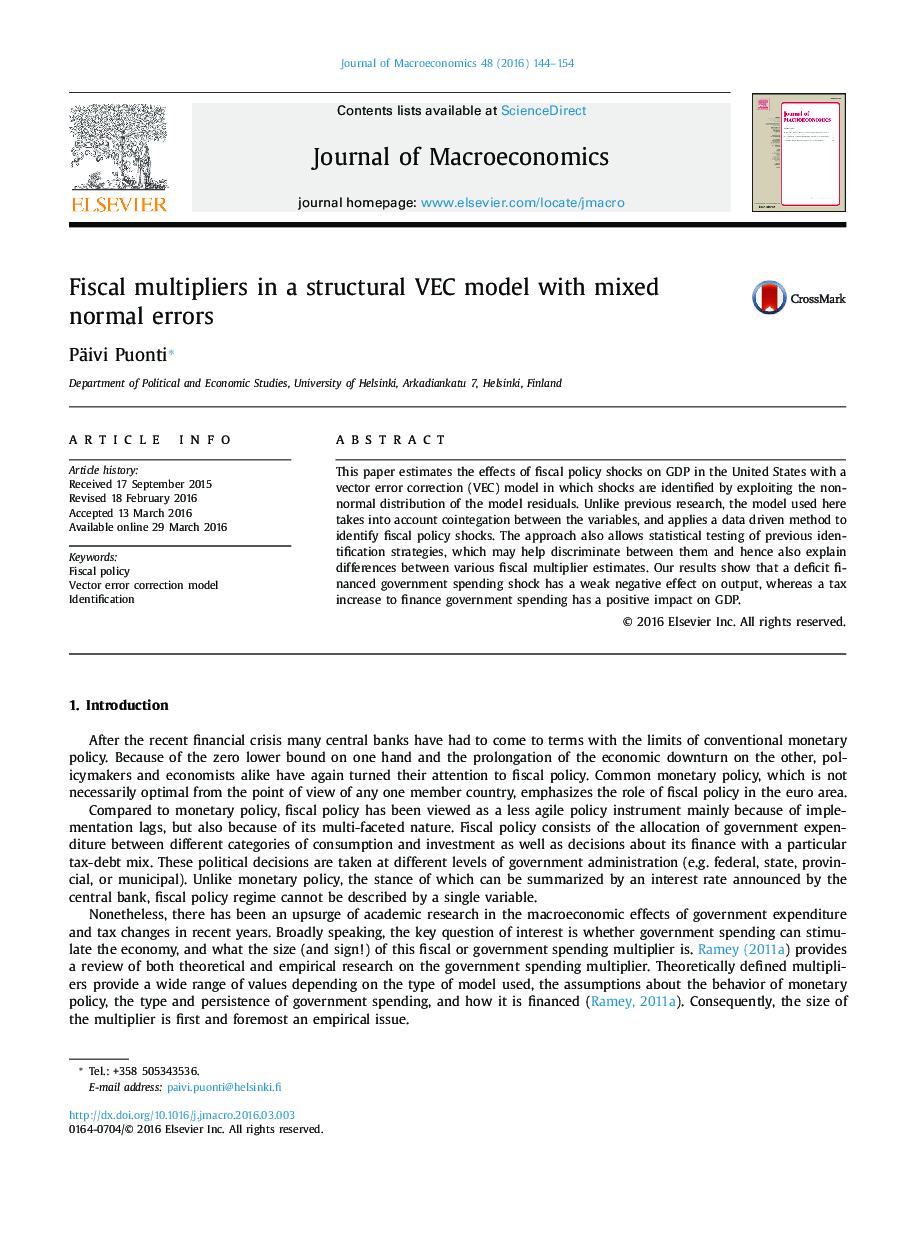| Article ID | Journal | Published Year | Pages | File Type |
|---|---|---|---|---|
| 965222 | Journal of Macroeconomics | 2016 | 11 Pages |
Abstract
This paper estimates the effects of fiscal policy shocks on GDP in the United States with a vector error correction (VEC) model in which shocks are identified by exploiting the non-normal distribution of the model residuals. Unlike previous research, the model used here takes into account cointegation between the variables, and applies a data driven method to identify fiscal policy shocks. The approach also allows statistical testing of previous identification strategies, which may help discriminate between them and hence also explain differences between various fiscal multiplier estimates. Our results show that a deficit financed government spending shock has a weak negative effect on output, whereas a tax increase to finance government spending has a positive impact on GDP.
Related Topics
Social Sciences and Humanities
Economics, Econometrics and Finance
Economics and Econometrics
Authors
Päivi Puonti,
